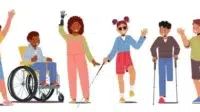Acquiring a foreign language in the modern world of technology is no longer limited to books and classrooms.
It is believed that watching foreign movies assists in expanding vocabulary and developing listening skills. But is it an effective method, or is it just entertainment?
As I am myself learning English now, I can see that movies do help but also have some limitations.
In my personal experience, listening to movies without subtitles in the original language becomes very hard when accents are not very distinct.
However, after repeated viewings and close listening with an ear for context, I gradually come to recognize more and more vocabulary and phrases irrespective of translations.
Films as a Learning Tool: Helpful, but Not Enough
Language acquisition demands enough exposure to the language. Movies can be an excellent resource since they offer real-world context and spontaneous expressions by native speakers something textbooks seldom have.
Moreover, they enable learners to comprehend cultural subtleties and real-world communication patterns.
Read More: Dunia Film: Transformasi Teknologi dan Dampaknya bagi Penikmat Film
However, language learning cannot rely on films. While films teach much new vocabulary, the number of words learned and retained is generally lower than in other learning procedures.
This suggests that watching films must be utilized in combination with other procedures for maximum effect.
Subtitles: Helpful or an Obstacle?
One of the greatest controversies is subtitles or not. For me, English subtitles help me recognize words that I might have missed by just listening. But if I continue to use subtitles in my own language, I tend to focus more on reading than listening.
Most learners of language believe that subtitles are useful but, if they are used all the time, could be adverse to listening ability acquisition.
The best strategy is to start out with subtitles and, as a period of time goes by, reduce their application so you might be able to watch a film without them.
Besides watching movies, there are many other means by which language acquisition is achieved, such as reading books, listening to podcasts, or language learning apps.
Online content like movies can be optimized when combined with active learning strategies, such as taking notes on new vocabulary or watching the key scenes again for better comprehension.
Read More: Tangisan Tersembunyi: Kenapa Film Mampu Memilukan Hati Kita?
From my own experience, films help me to pick up on natural speech patterns, but in order to actually learn a language, practice at speaking and writing is still necessary.
Films might be a fun means of studying, but they can’t replace contact in the target language itself.
Conclusion: Films as an Aid, Not a Single Solution
In my experience and other views, viewing foreign movies is helpful to acquire language, but it should not be the only method of learning. provide passive exposure, while active use of language like speaking, writing, and practicing is essential for real fluency.
It’s entertaining and beneficial to learn through movies, but only if we apply it along with other modes in order for it to effectively take place.
Would you say that? Will film viewing get enough exposure so one can gain fluency in a second language?
Writer: Farrel Anizar Razzani
Student College of Universitas Muhammadiyah Malang
References
1. Krashen, S. D. (1982). Principles and Practice in Second Language Acquisition.
2. Vanderplank, R. (2010). Dealing with Unfamiliar Words in Films: The Effect of Subtitles on Second Language Vocabulary Acquisition.
3. Pujolà, J. T. (2002). CALLing for Help: Researching Language Learning Strategies Using Help Facilities in Multimedia Listening.
4. Webb, S., & Rodgers, M. P. H. (2009). The lexical coverage of movies. Applied Linguistics, 30(3), 407–427.
5. Peters, E., Heynen, E., & Puimège, E. (2016). Learning vocabulary through audiovisual input: The differential effect of L1 subtitles and captions. System, 63, 134–148.
Editor: Siti Sajidah El-Zahra
Language: Rahmat Al Kafi
Ikuti berita terbaru Media Mahasiswa Indonesia di Google News















